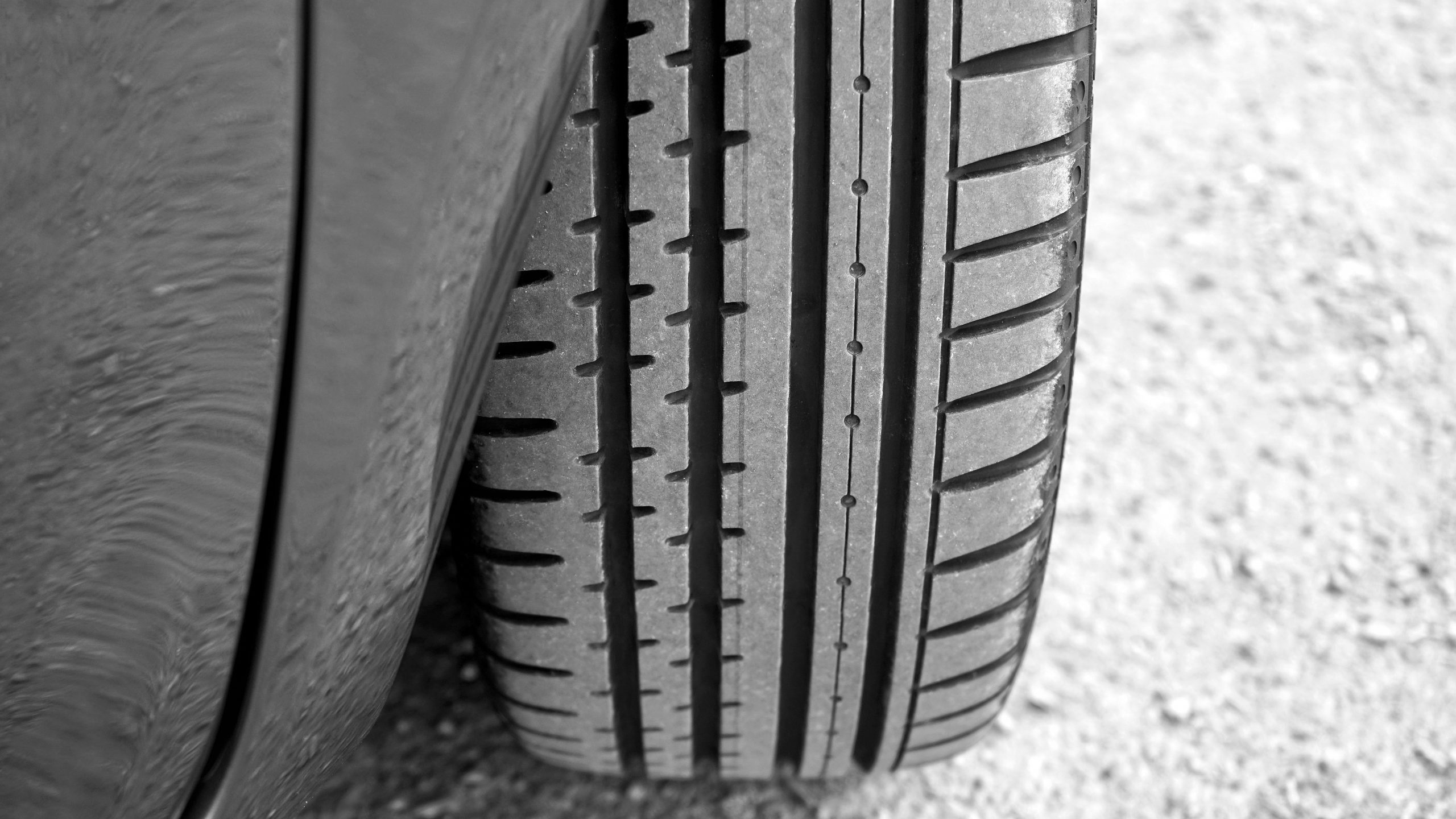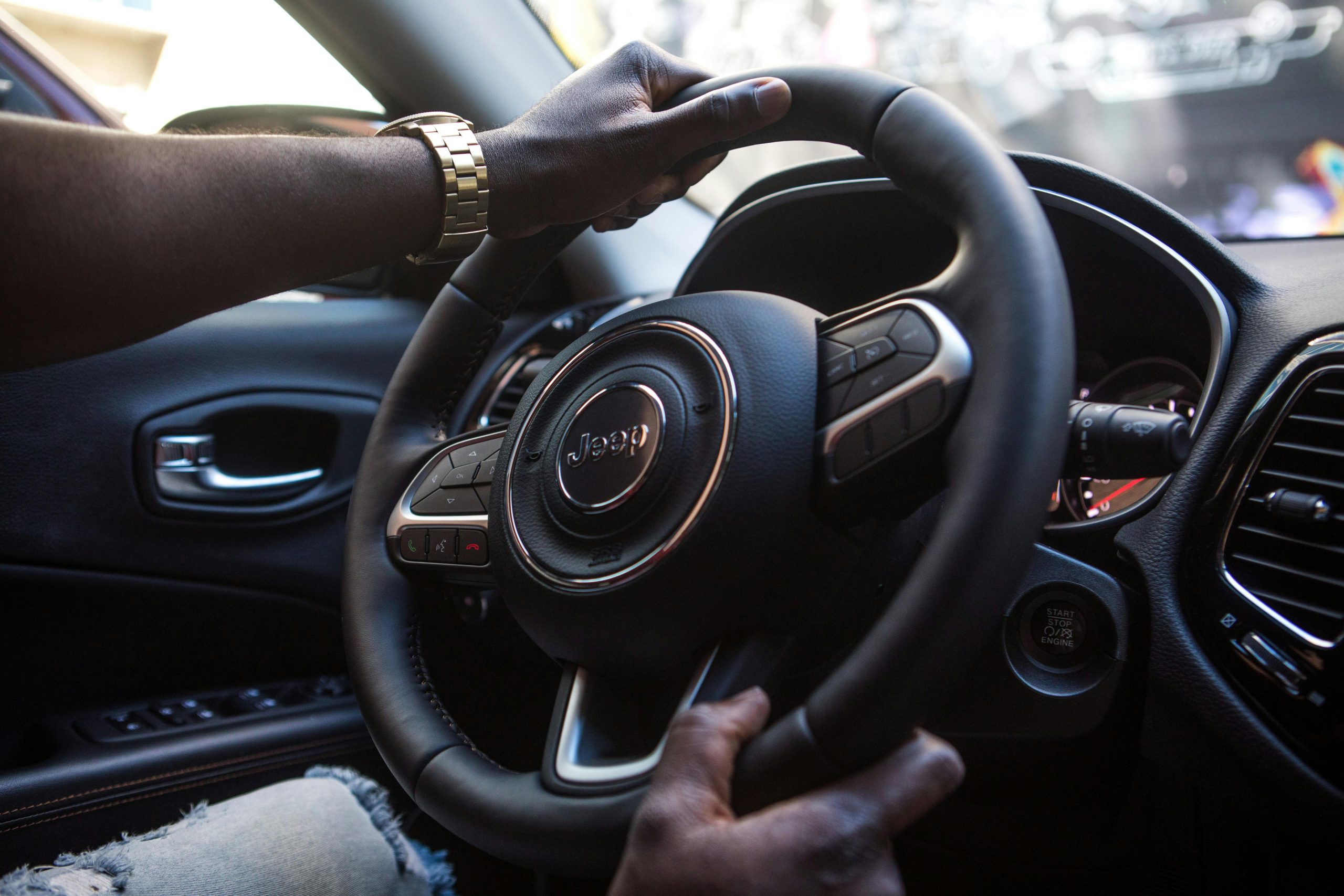You’re cruising along when suddenly you feel it—your car starts to shake. Maybe it’s subtle at first, then it gets worse. Whether it happens when you accelerate, brake, or idle, one thing’s for sure: something isn’t right.
So, why is your car shaking? There are several mechanical issues that could be behind the vibrations. Some are simple fixes, while others require immediate attention to prevent bigger damage (and costlier repairs).
In this article, we’ll go over the 10 most common mechanical reasons why your car may be shaking, how to identify them, and what you can do about it. Let’s get into it.
1. Tire Problems – The #1 Reason Your Car Is Shaking

If your car starts vibrating as you drive faster—especially around 40 to 60 mph—the first thing you should check is the tires.
Possible tire-related issues include:
- Unbalanced tires: Each tire and wheel assembly needs to be evenly weighted. If one is off, especially after new tires or pothole damage, it can cause your steering wheel or entire car to vibrate.
- Uneven tread wear: This often results from poor alignment or suspension problems. Uneven tires don’t roll smoothly, which leads to wobbling and shaking.
- Flat spots: If your car has been parked too long or you made an emergency stop, tires can develop flat areas that create rhythmic shaking.
- Out-of-round tires: Manufacturing defects or curb hits can distort a tire’s shape, making it bounce slightly with each revolution.
How to check:
- Visually inspect tire wear.
- Run your hand along the tread to feel for uneven patterns or high spots.
- Look for bubbles or bulges in the sidewall.
Solution:
Visit a shop for a wheel balance, alignment check, or tire rotation. These services are usually affordable and can restore a smooth ride fast.
2. Brake Problems – If It Shakes When You Stop
Many drivers ask: Why is my car shaking when I hit the brakes? If you notice pulsing or vibration through the brake pedal, the issue likely lies in your braking system.
Common brake-related causes:
- Warped brake rotors: Heat and repeated braking can cause rotors to wear unevenly. When the brake pads clamp down, the inconsistent surface creates a shaking sensation.
- Worn brake pads: Pads that have thinned out unevenly may not apply pressure smoothly, leading to pedal vibration and reduced stopping power.
- Sticking caliper: If a brake caliper doesn’t release fully, it can drag the pad against the rotor, causing the car to shake and overheat.
How to check:
- Listen for grinding or squeaking while braking.
- Feel for a shaking or pulsing sensation in the pedal.
- Inspect the rotors for deep grooves or discoloration.
Solution:
Have a mechanic resurface or replace rotors, change worn pads, and inspect the calipers for sticking or damage.
3. Engine Misfire or Mount Issues – Shaking While Idling
When your car shakes while idling, sitting at a stoplight, or starting from a complete stop, the issue could be under the hood—particularly with your engine mounts or combustion system.
Engine-related causes of vibration:
- Engine misfires: A misfire happens when one or more cylinders fail to ignite fuel properly. This throws off the balance and creates rough engine performance.
- Loose or broken motor mounts: These rubber or hydraulic parts secure the engine to the frame. If worn out, they can’t absorb engine movement, causing the whole car to shake.
Warning signs:
- Rough idle
- Check engine light
- A “thudding” feeling when shifting from park to drive
Solution:
A shop can perform a diagnostic scan for misfire codes (P0300-P0308). Mount issues require physical inspection. Fixing these problems early prevents additional wear on connected systems.
4. Suspension System – When You Feel Every Bump
Your suspension system is designed to absorb road shock. If it fails, you’ll feel the road much more—sometimes violently.
Common suspension-related issues:
- Worn shocks or struts: When these lose their dampening ability, your tires can bounce instead of hugging the road. This creates shaking at high speeds or over rough pavement.
- Bad control arms or bushings: These allow your wheels to flex up and down. If they’re worn or cracked, your car might vibrate when turning or braking.
- Broken ball joints: These joints connect the wheel hub to the rest of the suspension. When damaged, they create clunking noises and uneven tire contact.
How to check:
- Does your car bounce excessively after going over a bump?
- Do you hear clunking or squeaking when turning?
- Is the vibration worse on uneven roads?
Solution:
Have a mechanic inspect your struts, joints, and bushings. Suspension repairs are crucial for safe steering and braking.
5. Axle or Driveshaft Damage – Shaking That Gets Worse With Speed
If your car shakes harder the faster you go—or if you’ve hit a curb or pothole hard recently—your axles or driveshaft may be compromised.
How this damage causes shaking:
- Bent axle: A slightly bent axle can produce severe vibrations that grow with speed.
- Worn CV joints (in front-wheel-drive cars): These joints allow your wheels to flex and move. If torn or dried out, they’ll clunk and vibrate.
- Driveshaft issues (in rear-wheel or AWD vehicles): If out of balance, the shaft can cause floor vibrations that travel through the whole cabin.
Signs to watch:
- Clicking sounds when turning (CV joints)
- Shaking gets more intense the faster you go
- Vibration felt through the floor—not just the steering wheel
Solution:
Have a technician inspect the axles, joints, and driveshaft. Repairs here can be labor-intensive but are essential for safety and driveability.
6. Steering System Problems – Vibration When Turning

Shaking during turns often points to steering system issues.
Common causes:
- Loose or worn tie rods: These connect the steering rack to your wheels. If they have play, your wheels can wiggle slightly at high speeds or under load.
- Power steering fluid issues: Low or old fluid makes turning harder and noisier—and can strain steering components.
- Worn steering rack bushings: These absorb road vibration. If degraded, your steering becomes less precise and can shake.
How to spot it:
- Steering feels loose or sloppy
- Vibration only during turns or lane changes
- Whining noise when turning the wheel
Solution:
Flush or refill power steering fluid, and have tie rods and steering rack components inspected or replaced.
7. Faulty Spark Plugs or Ignition Coils – Rough Acceleration
Poor ignition performance doesn’t just affect your engine—it also creates noticeable shaking when accelerating or idling.
How it causes vibration:
- A weak or missing spark in one cylinder disrupts engine timing and power delivery.
- This results in “lumpy” engine operation and misfires, which you feel as shaking.
Symptoms:
- Engine light may be on
- Hesitation when pressing the gas pedal
- Poor fuel mileage or acceleration
Solution:
Replace spark plugs and ignition coils. These are relatively inexpensive repairs with a big impact on performance and smoothness.
8. Transmission Problems – Shaking When Shifting
A shaking car when changing gears—especially in automatics—may signal transmission trouble.
Common problems include:
- Worn clutch (in manuals): A slipping or failing clutch can cause jerky transitions.
- Faulty torque converter: This automatic transmission component controls gear fluid flow. A faulty one can cause juddering.
- Low or dirty transmission fluid: Poor lubrication leads to uneven power transfer, causing shaking or gear slippage.
Warning signs:
- RPM surges during shifting
- Delayed gear changes
- Shaking when shifting into reverse or drive
Solution:
Check and replace transmission fluid regularly. If problems persist, a specialist may need to diagnose internal transmission components.
9. Air and Fuel Delivery Issues – Shaking During Acceleration
Even something as small as a clogged air filter or dirty fuel injector can disrupt your engine’s balance.
Causes:
- Clogged fuel injectors: Reduced or uneven fuel flow causes engine misfiring and shaking.
- Dirty air filters: If not enough air reaches the engine, combustion suffers—resulting in hesitation and rough idling.
What to look for:
- Poor throttle response
- Engine stalling
- Shaking under load or hard acceleration
Solution:
Replace air and fuel filters, and consider a fuel injector cleaning service if mileage is high.
10. Exhaust System Leaks – Shaking with Noise or Fumes
A damaged exhaust system can cause unusual engine behavior, loss of backpressure, and even shaking.
Typical causes:
- Exhaust manifold leak: Can create engine misfires and strong vibration.
- Broken hangers or loose parts: These allow the exhaust pipe to rattle and vibrate against the vehicle body.
- Backpressure imbalance: This affects engine breathing and causes inconsistent power output.
Signs:
- Loud exhaust noise
- Visible rust or holes
- Unusual smells or reduced fuel economy
Solution:
Have your exhaust system inspected for cracks, rust, or loose fittings. This is especially important if you smell fumes in the cabin.
Why Is My Car Shaking? These Quick Checks Might Tell You
If you’re wondering “Why is my car shaking?” but aren’t sure where to begin, don’t panic. Start with some simple checks that can help you narrow down the problem—fast.
Quick Diagnostic Checklist:
- Check your tire pressure and tread wear: Low or uneven tire pressure is one of the most common and easily fixable causes of car shaking. Also look for bald spots, bubbles, or uneven tread wear.
- Listen for unusual noises: Clicking, knocking, squealing, or grinding can point to problems in your suspension, brakes, or drivetrain.
- Pay attention to when the shaking happens: Is it only at high speeds? When you brake? While turning or accelerating? The timing of the vibration is a key clue to its source.
- Look for dashboard warnings: Check for the check engine light, low fluid alerts, or any other warning lights that might indicate engine, brake, or transmission issues.
Once you’ve gathered these clues, you’ll be better equipped to decide if the problem is a simple DIY fix—like inflating your tires or replacing spark plugs—or if it’s time to bring in a professional to inspect more complex systems like the suspension, drivetrain, or transmission.
How Dangerous Is a Shaking Car?
It depends on the cause. Some issues are more annoying than dangerous—like unbalanced tires. Others, like brake or steering issues, can lead to accidents.
Don’t ignore it. A small shake today can lead to a major breakdown (or safety risk) tomorrow.
Wrapping Up
If you’ve been wondering “Why is my car shaking?”, now you know the most likely culprits. From unbalanced tires to serious engine issues, shaking is your vehicle’s way of telling you something’s wrong.
While some fixes are quick and affordable, others are more serious. The best move is to act early, figure out when the shaking happens, and bring your car in for inspection if you’re unsure.
By understanding these common causes, you’ll be better equipped to keep your car running smoothly—and your rides shake-free.

